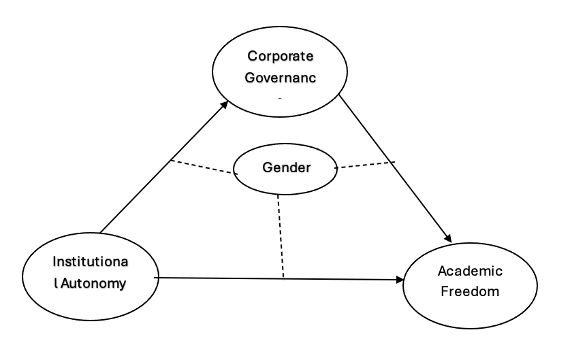by Sigurður Kristinsson
For decades, talk of “the academic community” has flowed easily through mission statements, strategy documents, and speeches from university leadership. Yet few stop to consider what this community is or why it matters. As universities increasingly orient themselves toward markets, rankings, and performance metrics, the gap between the ideal of academic community and the lived reality of academic work has widened. But this drift is not merely unfortunate; it threatens the very values that justify the existence of universities in the first place.
This blog explores why academic community is essential to higher education, how contemporary systems undermine it, and what a renewed vision of academic life might require.
The word “community” can be used in two different senses. One is descriptive: communities are simply networks of people connected by place, shared interests or regular interaction. From this sociological standpoint, academic communities consist of overlapping groups (faculty, students, administrators, service professionals) brought together by institutional roles, disciplinary identities, or digital networks, perhaps experiencing a sense of belonging, solidarity, and shared purpose.
But in debates about the purpose and future of universities, “community” is often used in a normative sense: an ideal of how academics ought to relate to one another. In Humboldtian (1810) spirit, contemporary advocates like Fitzpatrick (2021, 2024) and Bennett (1998, 2003) envision academic community as a moral and intellectual culture grounded in shared purpose, generosity, intellectual hospitality, mutual respect, and the collective pursuit of knowledge. From this philosophical perspective, community is not just a cluster of networks to be analyzed empirically but a normative vision of how scholarly life becomes meaningful. This aspirational view stands in stark contrast to the conditions shaping many universities today.
For several decades, developments in universities around the world have been hostile to academic community. While the precise mechanisms vary, academics report strikingly similar pressures: managerial oversight, performance auditing, intensifying competition, and the steady erosion of collegial structures and shared governance. Five threats to academic community are particularly worrisome:
Organisational (not occupational) professionalism
In her analysis of how managerial logic has co-opted the language of professionalism to justify top-down control in public institutions, Julia Evetts (2003, 2009, 2011) introduced a distinction between occupational and organisational professionalism. Occupational professionalism in academia implies membership in a self-governing community of experts committed to serving society through knowledge. Today, however, universities increasingly define professionalism in organisational terms: compliance with targets, performance indicators, and standardised procedures. The result is a hybrid system: academics retain some autonomy, but it is overshadowed by bureaucratic accountability structures that fragment communal relationships and discourage collective responsibility (Siekkinen et al, 2020).
Managerialism
Managerialism prizes measurable production outputs, standardized procedures, and vertical decision-making. As Metz (2017) argues, these mechanisms degrade communal relationships among academics as well as between them and managers, students, and wider society: decisions are imposed without consultation; bonus systems reward narrow indicators rather than communal priorities; and bureaucratic layers reduce opportunities for collegial dialogue. Managerialism replaces trust with surveillance and collegial judgment with quantification.
Individualism
The rise of competition – over publications, grants, rankings, and prestige – has amplified what Bennett (2003) called “insistent individualism.” Colleagues become rivals or useful instruments. Achievements become personal currency. In such settings, it is easy to see oneself not as part of a community pursuing shared goods but as an isolated producer of measurable outputs. This ethos erodes the solidarity and relationality necessary for any robust academic culture.
Retreat from academic citizenship
Academic citizenship refers to the contributions – committee work, mentoring, governance, public engagement – that sustain universities beyond research and teaching. Yet because these activities are difficult to measure and often unrewarded, they are increasingly neglected (Macfarlane, 2005; Feldt et al, 2024). This neglect fragments institutions and weakens the norms of shared responsibility that should hold academic life together.
Troubled collegiality
Collegiality includes participatory and collective decision-making, a presumption of shared values, absence of hierarchy, supportiveness, a shared commitment to a common good, trust beyond a typical workplace, and professional autonomy. It has long been central to academic identity but has become contested. Some experience collegial labor as invisible and unevenly distributed; others see managerial attempts to measure collegiality as just another way of disciplining staff. Efforts to quantify collegiality may correct some injustices but also risk instrumentalizing it, turning a relational ideal into a bureaucratic category (Craig et al, 2025; Fleming and Harley, 2024; Gavin et al, 2023).
Across all these pressures, a common thread emerges: the forces shaping contemporary academia weaken the relationships required for intellectual work to flourish.
If community is eroding, why should we care? The answer lies in the link between community and the values that higher education claims to serve. A helpful framework comes from value theory, which distinguishes between instrumental, constitutive, and intrinsic goods.
Community as instrumentally valuable
Academic community helps produce the outcomes universities care about: research breakthroughs, learning, intellectual development, and democratic engagement. Collaboration makes research stronger. Peer support helps people grow. Shared norms encourage integrity, rigor, and creativity. Without community, academic values become harder to realize.
Community as constitutive of academic values
In many cases, community is not merely a helpful means but a necessary constituent. Scientific knowledge, as philosophers of science like Merton (1979) and Longino (1990) have long emphasized, is inherently social: it requires communal critique, peer review, and collective norms to distinguish knowledge from error. Learning, too, is fundamentally relational, as Vygotsky (1978) and Dewey (1916) argued. You cannot have science or education without community.
Community as intrinsically valuable
Beyond producing useful outcomes, community enriches human life. Belonging, shared purpose, and intellectual companionship are deeply fulfilling. Academic community offers a sense of identity, meaning, and solidarity that transcends individual achievement (Metz, 2017). In this sense, community contributes directly to human flourishing.
Several examples show how academic values depend on community in practice:
Debates about educational values
The pursuit of academic values requires reflection on their meaning. Interpretive arguments about values like autonomy, virtue, or justice in education contribute to conversations that presuppose the collective norms of academic community (Nussbaum, 2010; Ebels-Duggan, 2015). These debates require shared standards of reasoning, openness to critique, and a shared commitment to better understanding.
Scientific knowledge and academic freedom
No individual can produce knowledge alone. Scientific communities ensure that discoveries are evaluated, replicated, and integrated into a larger body of understanding. Likewise, academic freedom is not a personal privilege but a communal norm that protects open inquiry (Calhoun, 2009; Frímannsson et al, 2022). It depends on solidarity among scholars.
Teaching as communal practice
Education flourishes in relational settings. Classrooms become communities in which teachers and students jointly pursue understanding. Weithman (2015) describes this as “academic friendship” – a form of companionship that expands imagination, fosters intellectual virtues, and shapes future citizens.
Across these cases, community is not optional; it is essential to academic values.
Given its importance, how might universities cultivate stronger academic communities?
Structural reform
Universities should try to resist the dominance of market logic. Sector-wide policy changes could help rebalance priorities. Hiring, promotion, and reward systems should value teaching, service, mentorship, and public engagement rather than focusing exclusively on quantifiable research metrics. Without structural support, cultural change will be difficult.
Cultural renewal
A healthier academic culture requires a different mindset—one that foregrounds generosity, relationality, and shared purpose. In Generous Thinking, Fitzpatrick (2021) argues that building real community requires humility, conversation, listening, and collaboration. Community cannot be mandated; it must be practised.
This requires academics to challenge competitive individualism, share work equitably, strengthen trust and dialogue, and reimagine collegiality as a lived practice rather than a managerial tool. Most importantly, it requires us to recognize ourselves as fundamentally relational beings whose professional purpose is intertwined with others.
A moral case for academic community
Academic community is not only epistemically valuable; it is morally significant. Relational moral theories argue that human flourishing depends on identity and solidarity. We become the moral human beings we are through our communal relationships (Metz, 2021).
Applying this to academia reveals that collegiality is grounded in shared identity and shared ends. Since the moral obligations created by academic relationships remain professional, collegial community does not require intrusive intimacy. Far from suppressing dissent or professional autonomy, solidarity requires defending academic freedom and academic values generally.
A relational understanding of morality thus implies that the ideal of academic community promises not only a more fulfilling and coherent sense of occupational purpose, but also a way of relating to others that is more satisfying morally than the current environment individualistic competition.
Universities today face an existential challenge. In the rush to satisfy markets, rankings, and managerial demands, they risk undermining the very relationships that make academic life meaningful. Academic community is not a nostalgic ideal; it is the cornerstone of learning, knowledge, virtue, and human flourishing.
If higher education is to reclaim a sense of purpose, it must begin by cultivating the social and moral conditions in which genuine community can grow. This requires structural reforms, cultural renewal, and a shared commitment to relational values. Without such efforts, universities will continue drifting toward fragmentation, losing sight of the goods they exist to protect.
Rebuilding academic community is not merely desirable. It is necessary – for the integrity of scholarship, for the flourishing of those who work within universities, and for the public good that higher education is meant to serve.
Sigurður Kristinsson is a Professor of Philosophy at the University of Akureyri, Iceland. His research applies moral and political philosophy in various contexts of professional practice, increasingly intersecting with the philosophy of higher education with emphasis on the social and democratic role of universities.






